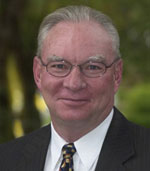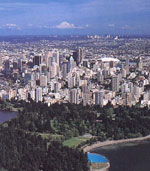
Larry Campbell, Mayor of Vancouver and 2004 World Mayor finalist for the Americas

FRONT PAGE
About us

The 2010 results
The 2010 project
The 2010 finalists
Code of Ethics
The World Mayor Prize

The 2008 results
The 2008 project
The 2008 finalists
The World Mayor Award

The 2006 results
Methodology
The 2006 finalists
The World Mayor Award

The 2005 results
Contest methodology
List of finalists
The World Mayor Award

Mayor of Athens
Mayor of Guatemala City
Mayor of Mississauga
Mayor of San Fernando
Mayor of San Francisco

Mayor of Athens
Mayor of Guatemala City
Mayor of Mississauga
Mayor of San Fernando
Mayor of Vienna

Comments on finalists from The Americas
Comments on finalists from Europe
Comments on finalists from Asia, Australia and Africa
Comments on Addis Ababa
Comments on Antananariva
Comments on Athens
Comments on Atlanta
Comments on Belo Horizonte
Comments on Bonn
Comments on Guatemala City
Comments on Karachi
Comments on London
Comments on Melbourne
Comments on Mississauga
Comments on Rio de Janeiro
Comments on Rome
Comments on San Fernando
Comments on San Francisco
Comments on Toronto
Comments on Vancouver
Comments on Vienna

Mayor of Addis Ababa
Mayor of Antananarivo
Mayor of Athens
Mayor of Belo Horizonte
Mayor of Bonn
Mayor of Ekaterinburg
Mayor of Guatemala City
Mayor of Innsbruck
Mayor of Karachi
Mayor of Kiev
Mayor of Melbourne
Mayor of Mississauga
Mayor of Munich
Mayor of Rhodes
Mayor of Rome
Mayor of Tshwane
Mayor of Vienna

The 2004 contest
List of all 2004 finalists
Edi Rama wins 2004 award
People ask - Edi Rama replies
Why we voted for the Mayor of Tirana
Why we voted for the Mayor of Mexico City
History of Tirana

Front Page
Site Search
About City Mayors
Mayor of Vancouver
By Nick Swift
Choose one. The Mayor of Vancouver is Li Jian Bao. The Mayor of Vancouver is Dominic Da Vinci. The Mayor of Vancouver is Larry Campbell. The Mayor of Vancouver, who will retire at the end of his present term, is all of the above.
The correct answer is “all of the above”: the city’s Chinese community held a contest and bestowed a carefully-thought-out Chinese name on him, and fans of a popular Canadian television series have long known that he is the model for its title character..
The manifold nature of the life and career of the man who in 2002 was elected to the highest municipal office in Vancouver, British Columbia, Canada is evidenced both in the depth of his commitment to the broadest range of citizens (the approach to dealing with drug abuse for which in itself he and Vancouver have become justly famous) and in the drama that is probably inevitable where a number of different characters are obliged to interact being realized, again in its own right, culturally.
Shortly after he, running on a Coalition of Progressive Electors (COPE) platform, replaced Philip Owen (under whose mayoral watch the ‘Four Pillars’ drug strategy had its inception) and overwhelmingly defeated Jennifer Clarke of the right wing Non-Partisan Association and Valerie MacLean of the Vancouver Civic Action Team, several organizations in the city’s Chinese community and listeners to a multicultural radio station got together to decide on a Chinese name for him (Li Jian Bao in Mandarin, Lei Gin Bo in Cantonese).
In his inaugural speech, the commitments Larry Campbell voiced to addressing “the crisis of addiction and poverty on the Downtown Eastside”, which need emerged “against the backdrop of the Missing Women tragedy” (the complete and unexplained disappearance of large numbers of prostitutes over many years), and the homelessness that goes with those realities were linked to a larger scale vision: “This,” he said, “can only be the beginning, however, of our efforts. Despite the city’s solid record of investment in low-cost and social housing, national and provincial programs have been eliminated. It is not fair to expect local taxpayers to make up the social deficits caused by downloading of programs and responsibilities from senior levels of government. Revitalization of the Woodward’s Building is essential if we wish to spark new economic activity along Hastings Street in the Downtown Eastside. While the costs of the project are daunting, the benefits are enormous. Apart from the economic and social advantages of new retail opportunities, market housing and social housing in the Woodward’s Building itself, the city would realize additional gains by linking Chinatown with Gastown and the cruise ship terminal at Canada Place. Here, as in many other cases, we need commitment and the financial support from Victoria” (capital of British Columbia) “and Ottawa. The ramifications go well beyond our city’s borders, and so, too, does the responsibility to cooperate to find solutions.”
Vision moved nearer to reality in May 2004, when Mayor Campbell and Councillor Raymond Louie presented their proposals to encourage a dramatic expansion of private sector investment in Chinatown. “Chinatown community leaders,” said the mayor, “have laid the groundwork for a renewal of this community by working with all three levels of government to spur new infrastructure, enhanced community facilities and new cultural activity. There’s a huge development opportunity for the private sector, and I’ve asked Councillor Louie to work with the community to drive this initiative forward.”
“The initial success of the Four Pillars Strategy and the reduction in street disorder means Chinatown is ready for revitalization,” said Councillor Louie. “Through the Chinatown vision and the heritage bonus system already in place, we are ready to welcome up to 5000 new residents to this neighbourhood while respecting the community’s unique character. This is the opportunity we want to highlight for investors and developers. Chinatown is ready to begin a new era.”
The meeting with Chinese community leaders was part of a series of consultations with business, community groups and neighbourhood associations that began in November 2003, and continued with a public Mayor’s Forum in January. Those consultations included meetings with people who are homeless or living on the street.
The Four Pillars Strategy consists of enforcement, treatment, prevention and harm reduction, and has as its goal “to eliminate the open drug market on the Downtown Eastside by the next election. We should see more people in treatment and detox. A comprehensive education and prevention program should be in place to reduce the toll of drug addiction. New housing and business investment should be generating new activity in the community.
“Equally importantly, we should see a reduction in drug-related property crime and an increase in neighbourhood security across the city.”
The program has included the opening, in September 2003, in the heart of the Downtown Eastside, of the first safe injection site in the Western hemisphere. Mayor Campbell’s and former Mayor Owen’s work in the area of reducing the harm caused by drugs was acknowledged in November when they and Canadian Senator Pierre Claude Nolin (active in cannabis policy reform) became the first Canadians to be awarded the Richard J. Dennis Drugpeace Award for Outstanding Achievement in the Field of Drug Policy Reform by the New York-based Drug Policy Alliance, whose Executive Director, Ethan Nadelmann, said, “Thanks to the courage of people like Mayors Owen and Campbell and Senator Nolin, Canada is increasingly breaking with Washington’s drug war and following the Western European model of pragmatic and humane reform”.
(The frequent perception south of the US-Canada border, at least as expressed by some political leaders, is that too-liberal Canadian laws are responsible for the US being inundated with, especially, Canadian marijuana of a potency far above what was available when the drug-based countercultural revolution of the 1960s occurred, but very recent (July 2004) statistics indicate that only a tiny fraction of the marijuana in the US does, in fact, come from the ‘Great White North’.)
Contrary, perhaps, to expectation, Larry Campbell is neither a current nor a former, neither an at-home nor an overt flower child. His views on how to deal with narcotics addiction and the issues that surround it are firmly rooted in his years as an officer with the Royal Canadian Mounted Police, including in the Drug Squad, then as the first Vancouver District Coroner, and then, in 1996, as BC Chief Coroner at a time when drug overdose deaths were skyrocketing to as high as 400 a year. He retired as Chief Coroner in 2000, but continued to advocate for the thousands suffering drug-related harm.
After that he worked as a private consultant, providing forensic services for both industry and government. It was that phase of his life that led, during the 2002 election, to COPE and some other Campbell supporters handing out buttons that read, “Mayor Da Vinci”.
‘Dominic Da Vinci’ is the fictional former-cop, feisty and compassionate Vancouver Coroner in the long running, Gemini (Canadian Emmy)-winning television drama, ‘Da Vinci’s Inquest’. (Da Vinci is played by Nicholas Campbell (no relation), whose film credits include ‘A Bridge Too Far’, ‘The Dead Zone’, ‘Naked Lunch’ and ‘We the Jury’.) Larry Campbell is not only the broad model for Da Vinci; he has co-written some episodes, and is a consultant to the show. During the election, he was careful to state that he is not, however, Da Vinci, and his campaign did not make reference to the show’s contents.
A persistent story line in the television series has been the vanishing from the streets the real-life Larry Campbell is trying to clean up of scores of prostitutes. A horrific apparent explanation for the real-life Missing Women has emerged with the discovery of remains on the property of a pig farmer, who awaits trial.

Vancouver, widely acclaimed as one of the most beautiful cities in the world (Photo: Roger Helliwell)
Introducing
World Mayor 2006
The World Mayor project is now in its third year. As in 2004 and 2005, this year’s World Mayor will again be seeking out mayors who have the vision, passion and skills to make their cities amazing places to live in, work in and visit. The World Mayor project aims to show what outstanding mayors can achieve and raise their profiles. It honours those who have served their communities well and who have made contributions to the well-being of cities nationally and internationally. The most outstanding mayor of 2006 will be presented with the World Mayor award.
In 2004, Edi Rama, Mayor of Tirana, won the Award. The 2005 winner was Dora Bakoyannis, Mayor of Athens and now Greek Foreign Minister.
Between January and May each year, citizens from across the world are invited to nominate mayors for the World Mayor Award. They are also asked to provide reasons for their choice. After the close of the nomination stage, City Mayors, the organisers of the contest, prepare a shortlist of mayors who go forward to the second round of the World Mayor contest. In 2006, the list of finalists includes 50 mayors from North and South America, Europe, Asia, Australasia as well as Africa.
